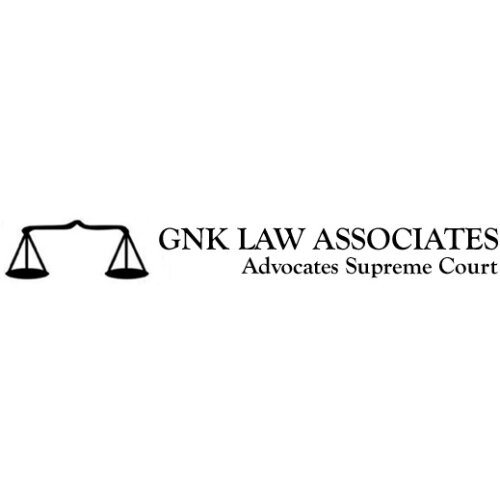Best Public-Private Partnerships (PPP) Lawyers in Delhi
Share your needs with us, get contacted by law firms.
Free. Takes 2 min.
List of the best lawyers in Delhi, India
About Public-Private Partnerships (PPP) Law in Delhi, India
Public-Private Partnerships (PPP) are collaborative ventures between government entities and private sectors to finance, build, and operate projects and services traditionally provided by the public sector. In Delhi, PPPs are widely used for infrastructure development such as roads, transportation systems, water supply, health facilities, and schools. The objective is to leverage private sector expertise, innovation, and funding to improve and maintain public amenities, while ensuring efficient resources management and risk sharing. PPP models in Delhi are governed by a framework of central and state policies, guidelines, and contractual agreements designed to align public interests with private efficiency.
Why You May Need a Lawyer
Engaging in a Public-Private Partnership can be complex and involves substantial legal and financial risks. You may need a lawyer if you are:
- A private business considering bidding for a PPP project
- A public official or agency involved in structuring a PPP project or drafting the contract
- An investor seeking clarity on legal liabilities, compliance, and risk allocation
- A contractor or subcontractor interacting with PPP consortia
- Facing a dispute related to project execution, contract performance, or payments
- Encountering delays related to approvals, environmental clearance, or land acquisition
- Unclear about taxation, regulatory frameworks, or compliance under local laws
- Requiring advice on exit clauses, termination, or renegotiation of PPP contracts
PPPs involve stringent compliance requirements, multi-party negotiations, and often span long project durations. Legal counsel helps you navigate the contractual, regulatory, and procedural complexities involved.
Local Laws Overview
Delhi follows the broad legal framework for PPP as outlined by the Government of India, but also has state-specific policies and procedures. The following aspects are particularly relevant for PPPs in Delhi:
- Policy framework: Key central guidelines include the National PPP Policy, Model Concession Agreements, and the Manual for Procurement of PPP Projects. Delhi also adopts its own policies, such as those for infrastructure development and sector-specific PPP guidelines.
- Bid process: Competitive bidding through Request for Proposal (RFP) or e-tenders is standard. Transparency and fairness in the selection process are strictly regulated.
- Regulatory clearances: Projects often require multi-level approvals from state authorities, including environmental, land use, and labor law compliance.
- Contract structure: PPP contracts typically outline the scope of work, risk sharing mechanisms, payment terms, performance standards, dispute resolution clauses, and termination conditions.
- Dispute Resolution: Arbitration and conciliation methods are favored, and contractually determined forums are often stipulated for addressing disputes.
- Sectoral regulations: Sectors like transport, water, health, and energy have specific central and state regulations that may impact the PPP framework.
Understanding the interplay between central guidance and Delhi-specific rules is key for successful PPP participation.
Frequently Asked Questions
What is a Public-Private Partnership (PPP) in Delhi?
A PPP in Delhi is a collaborative project between a government entity in Delhi and a private sector company for delivering infrastructure or services that have traditionally been provided by the public sector.
Which types of projects are usually conducted through PPP in Delhi?
Common PPP projects in Delhi include roads, metro rail, transportation hubs, hospitals, schools, water supply and sanitation, and solid waste management facilities.
How are PPP projects financed?
PPP projects typically involve private investment, government support through viability gap funding, grants, or land allocation, with revenue generated from operations or user charges.
What laws govern PPPs in Delhi?
PPPs in Delhi are governed by a combination of central laws such as the Infrastructure Investment Trusts Regulations, National PPP Policy, and Delhi-specific policies and sectoral regulations.
Do PPP contracts have a standard format?
While Model Concession Agreements exist for several sectors, each PPP contract is customized for the project's specifics, often incorporating guidelines from central and state authorities.
How is risk allocated in a PPP project?
Risk is typically shared between the public and private partners according to who is best able to manage it, and this allocation is detailed in the PPP agreement.
What are the dispute resolution mechanisms for PPPs in Delhi?
Disputes are usually resolved through arbitration, mediation, or as specified in the contract, with recourse to relevant courts if necessary.
How does the bidding process work for PPP projects?
The government entity issues an Expression of Interest or Request for Proposal, evaluates bids based on technical and financial criteria, and awards the project to the qualifying bidder.
Can a PPP project be terminated before the expiry of the contract?
Yes, termination is possible under the agreed contract terms, usually in cases such as default, force majeure, or mutual consent. The contract outlines the consequences and compensation.
What are the main regulatory approvals required in Delhi for PPPs?
Approvals may include land use permission, environmental clearances, local municipal approvals, labor consents, and sector-specific regulatory compliance.
Additional Resources
If you seek further information or support on PPPs in Delhi, consider consulting the following resources:
- Planning Department, Government of NCT of Delhi - for PPP policy and project information
- Delhi Urban Shelter Improvement Board (DUSIB) - for housing and urban infrastructure PPPs
- Delhi Development Authority (DDA) - for land and infrastructure projects
- Department of Economic Affairs, Ministry of Finance, Government of India - for national guidelines and model agreements
- Public-Private Partnership Cell, NITI Aayog - for policy guidance and best practices
- Confederation of Indian Industry (CII), Federation of Indian Chambers of Commerce and Industry (FICCI) - for industry guidance and networking
- Legal aid services or local bar associations - for legal advice referrals
Next Steps
If you need legal assistance for a PPP matter in Delhi:
- Gather all relevant documents including draft contracts, project proposals, and correspondence.
- Prepare a summary of your objectives and concerns for the PPP project.
- Consult with a lawyer who specializes in PPP or infrastructure law in Delhi.
- Discuss risk identification, regulatory compliance, and the most suitable PPP structure for your project.
- Seek legal assistance early during project planning to avoid delays and unforeseen risks.
- Participate in government or industry workshops related to PPP in your sector.
Legal counsel will help you understand your rights and responsibilities, comply with all statutory requirements, negotiate favorable terms, and protect your interests throughout the PPP lifecycle.
Lawzana helps you find the best lawyers and law firms in Delhi through a curated and pre-screened list of qualified legal professionals. Our platform offers rankings and detailed profiles of attorneys and law firms, allowing you to compare based on practice areas, including Public-Private Partnerships (PPP), experience, and client feedback.
Each profile includes a description of the firm's areas of practice, client reviews, team members and partners, year of establishment, spoken languages, office locations, contact information, social media presence, and any published articles or resources. Most firms on our platform speak English and are experienced in both local and international legal matters.
Get a quote from top-rated law firms in Delhi, India — quickly, securely, and without unnecessary hassle.
Disclaimer:
The information provided on this page is for general informational purposes only and does not constitute legal advice. While we strive to ensure the accuracy and relevance of the content, legal information may change over time, and interpretations of the law can vary. You should always consult with a qualified legal professional for advice specific to your situation.
We disclaim all liability for actions taken or not taken based on the content of this page. If you believe any information is incorrect or outdated, please contact us, and we will review and update it where appropriate.













